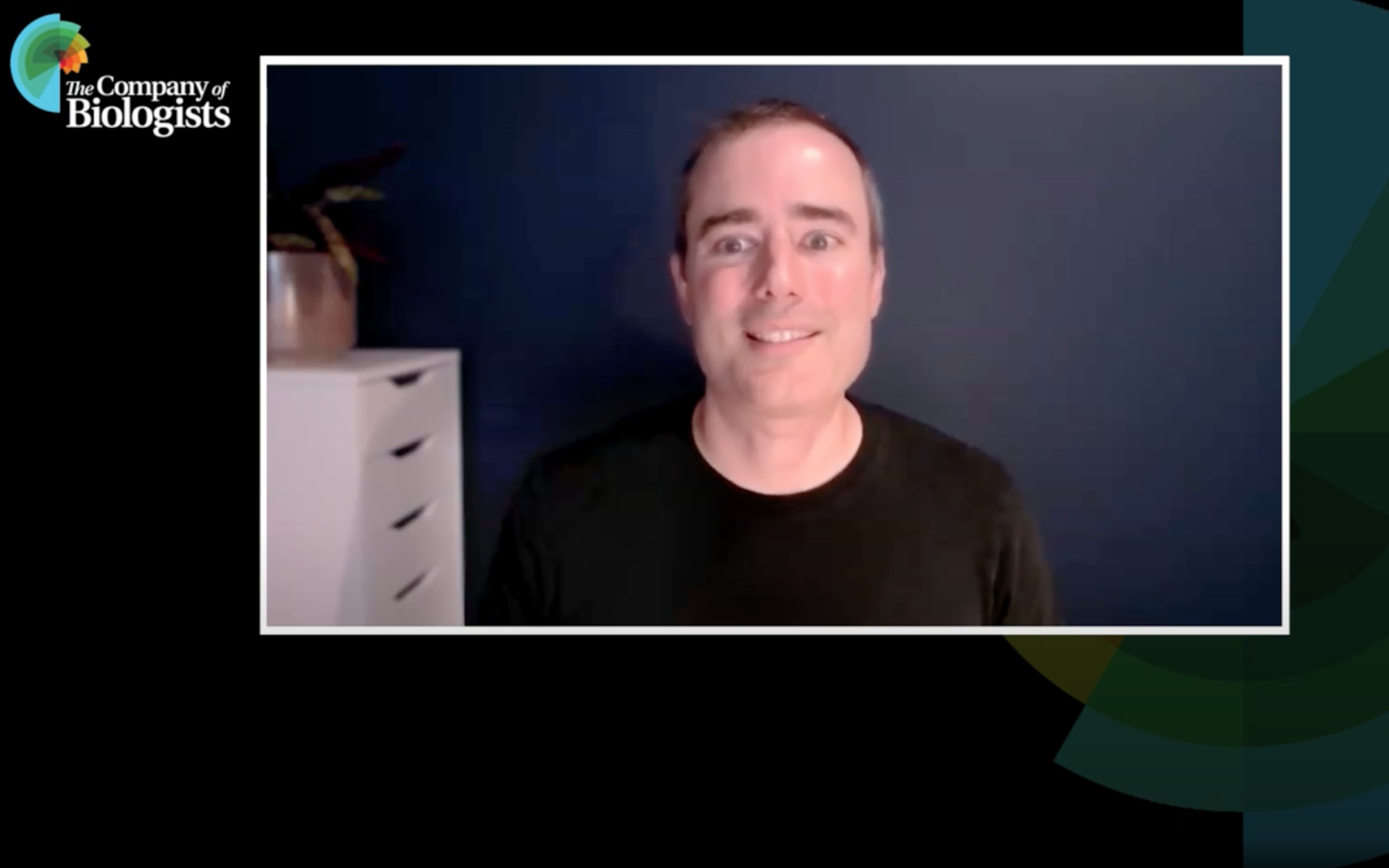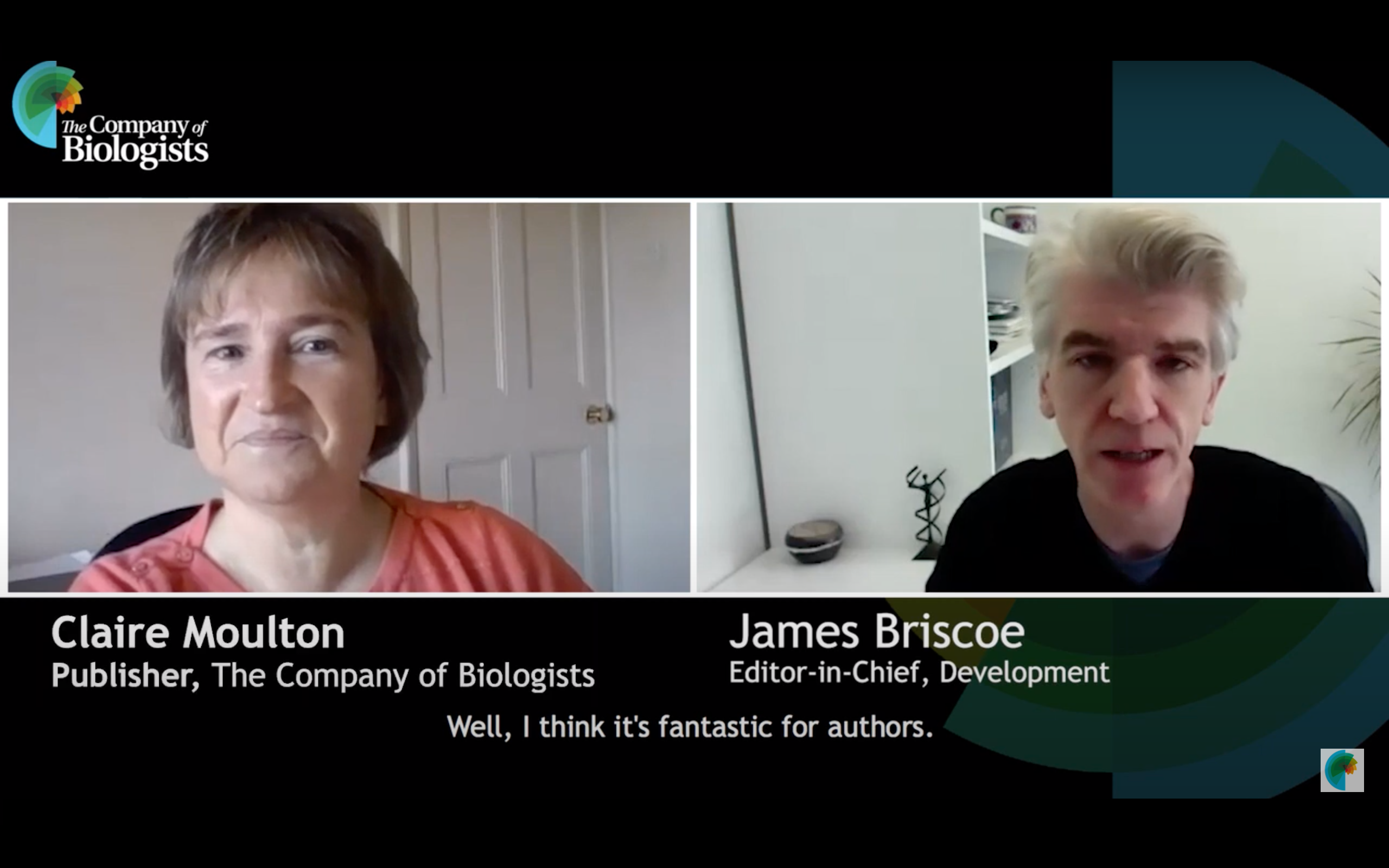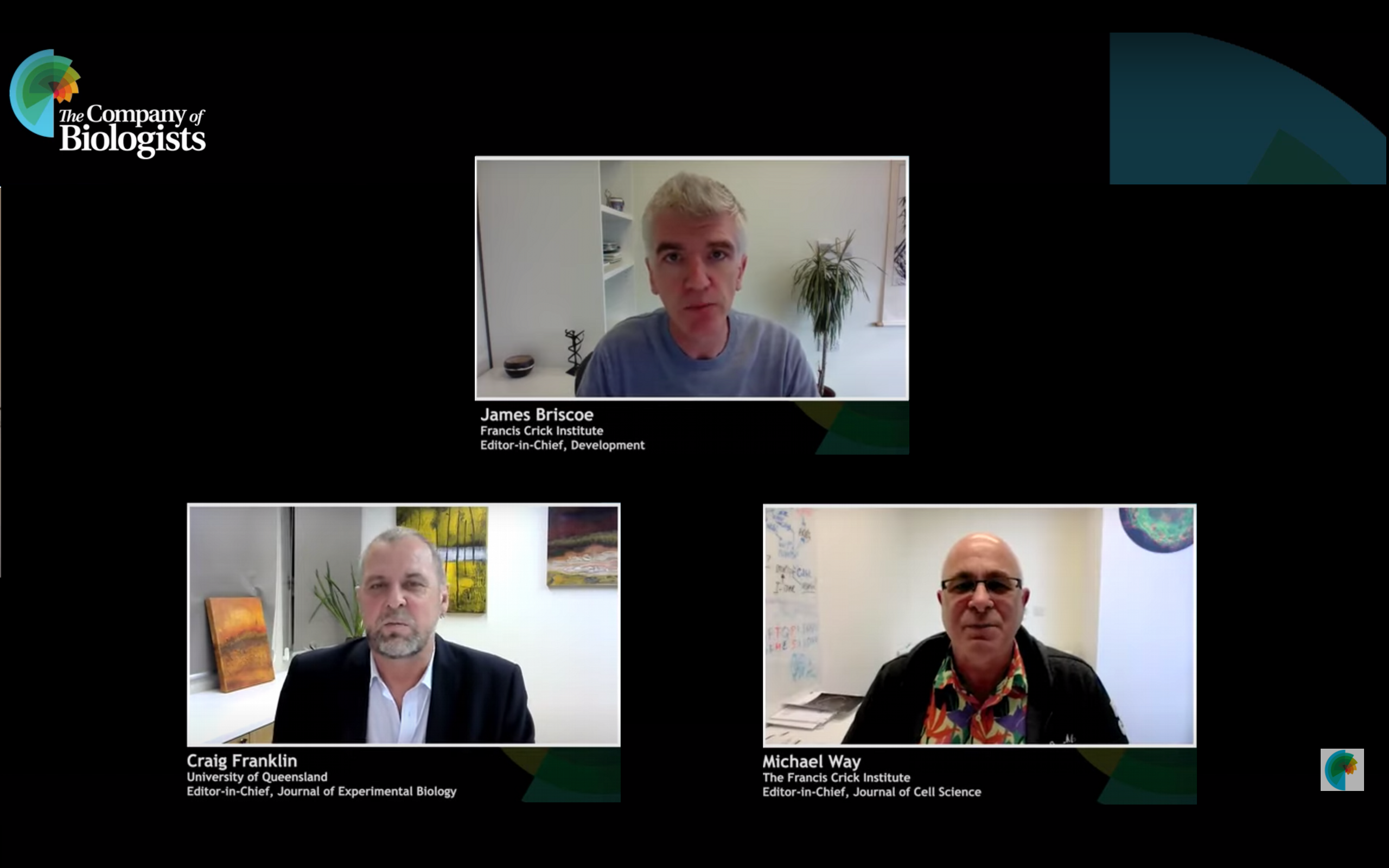Craig Franklin on Read & Publish
Craig Franklin (Editor-in-Chief of Journal of Experimental Biology) talks to Claire Moulton (Publisher at The Company of Biologists) about the benefits of Read & Publish agreements and how they are helping to increase the proportion of Open Access content in his journal.
Transcript
Claire Moulton: I am Claire Moulton, the publisher at The Company of Biologists and today I am speaking with Craig Franklin, the Editor-in-Chief of Journal of Experimental Biology.
Claire Moulton: So Craig, Journal of Experimental Biology has been on quite an Open Access journey with the emergence of the Read & Publish agreements.How did you and your authors feel before the Read & Publish agreements came into play about Open Access?
Craig Franklin: I think most of us like the concept of Open Access.The ability to be able to share your publications as broadly as possible,not only to our scientific community but to the general public, but the impediment was the cost.
Craig Franklin: For Journal of Experimental Biology,our field doesn't get the huge grants and so the cost of publishing Open Access was prohibitory for most.
Claire Moulton: And so what change did you see once the Read & Publish agreements came into play?
Craig Franklin: Well, the Read & Publish agreements has absolutely changed how we view Open Access. We have seen a massive turnaround.We have seen an increase in Open Access publications.
Craig Franklin: And this deal, this Read & Publish deal has enabled researchers, experimental biologists to be able to publish Open Access in Journal of Experimental Biology.without having to incur the costs associated with APCs (article processing charges).
Craig Franklin: Yes, the costs are paid for by librarians or by institutes or institutions but it leaves the researcher to be able to spend their hard-earned grant funding on actually doing the research and supporting students.
Claire Moulton: And we have seen a massive change on Journal of Experimental Biology so, the journal had never got above 5% of the research being published open access and we are now at nearly 20%.
Claire Moulton: So what sort of feedback have you had from authors?
Craig Franklin: We have had wonderful feedback from authors. As I say, it is a game changer in how we get our science out there.
Craig Franklin: So suddenly, through these Read & Publish deals, researchers, authors are able to have Open Access articles that they can share broadly across their scientific community but even more broadly, to the general public and that enables a discourse, a way to communicate more broadly our science.
Claire Moulton: And we have seen that our Open Access articles receive more than twice as much usage as our non-Open Access articles.So we can see that there is a real benefit for authors and readers.
Claire Moulton: How has your view on Open Access changed then over the past year?
Craig Franklin: It has changed my views dramatically. I am very much in favour of this because the Read & Publish deals facilitate Open Access.That is important. It acts as a catalyst and suddenly, I think what we will see is our papers in Journal of Experimental Biology being read more widely and it will enable people from a variety of perhaps less funded, less fortunate institutions to be able to actually access our papers.
Craig Franklin: That is the wonderful thing about Open Access. It doesn't matter where you are in the world, what your economy is like, you can actually access those papers. Isn't that a wonderful thing?
Craig Franklin: So yes, the response has been overwhelmingly positive.And I hope that we can encourage more institutions, universities to sign up to these deals.
Claire Moulton: So we have librarians putting in place agreements that really help authors and readers.
Claire Moulton: Thank you, Craig.That has been brilliant talking to you.Thank you very much.
Craig Franklin: Thanks Claire.I think we have a bright future with Open Access.Thank you.










